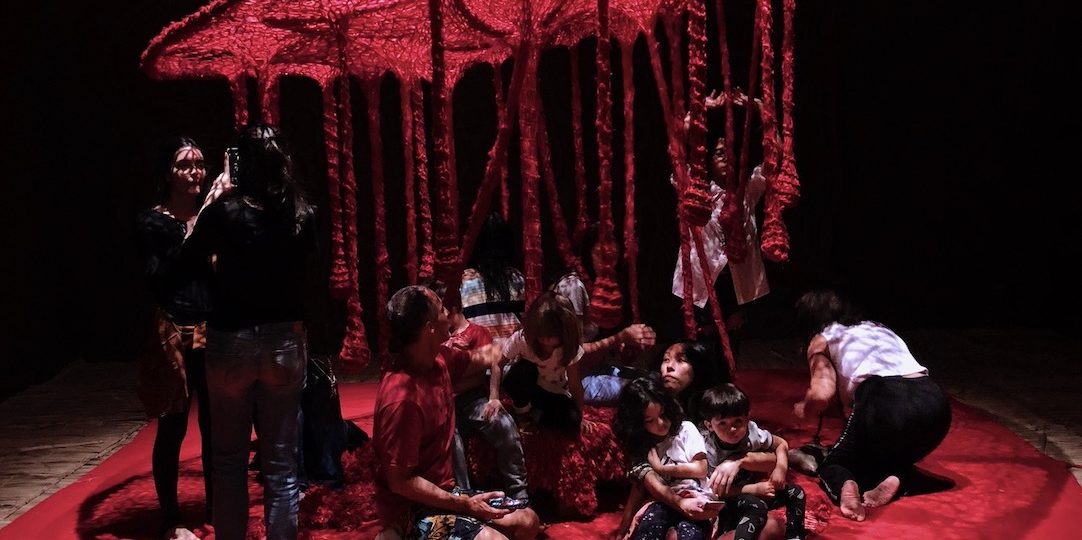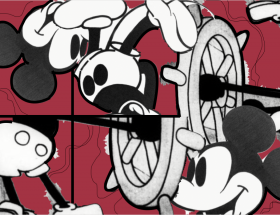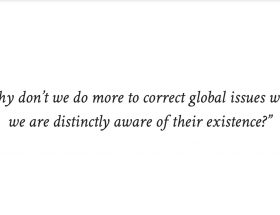Love is a universal feeling shared by all, known to all and felt by all – good and bad. I feel safe in assuming that many of us believe our emotions to be the rawest, most vulnerable and most intimate part of ourselves. Our emotions are the one part of our personality that is entirely ours – different from anyone else’s on the planet. Thus, you would think that our emotions are something we are inherently entitled to, regardless of who we are – a universal human attribute that everyone experiences and has a right to feel, right? Indeed, that is what you would think about feelings of love and the set of complex emotions that spring from it. However, capitalist societies and a rigid class system (yes, you guessed it!) have infiltrated people’s right to experience, express and act upon feelings of love, becoming a privilege in many instances reserved for the middle and upper classes of society. You might think that this statement is a reach but research on dehumanization has shown that lower social and economic classes are consistently implicitly and explicitly dehumanized. When individuals are dehumanized, they are denied uniquely human traits such as the ability for complex emotions, the ability to love. Literature on dehumanization outlines two types of dehumanization, animalistic and mechanistic, both leading to the perception of the dehumanized as lacking complex emotions such as love, empathy and other traits considered to be uniquely human. Whilst capitalist norms are responsible for the reality of class inequalities, I believe that the dehumanization of others is what is keeping the social class system alive and well – a mutually reinforcing cycle where class inequalities result in dehumanizing beliefs and dehumanizing beliefs keep class inequalities in place.
Take criminal justice systems around the world as an example. Sociological findings show that economically disadvantaged individuals are commonly singled out for harsher treatment throughout criminal justice procedures but in particular at the start. For the same offence, someone with limited means is more prone to be arrested and immediately charged whereas individuals pertaining to higher social and economic classes are more likely to be released without formal charges. Thus, from the start being a lower-class individual puts you at a disadvantage compared to someone with extensive financial means or prominent social status or both – but this is news to no one. However, one should note that psychological research on dehumanization supports these findings by showing that lower-class individuals are more commonly dehumanized and that the frequency with which individuals are dehumanized results in a higher likelihood of arrest. Hence, dehumanizing attitudes towards those belonging to lower social and economic classes drive the increased arrest rates. Additionally, dehumanizing an individual increases the perceivers intent to punish and imprison the dehumanized which could serve to explain the disproportionate amount of people from lower social and economic classes in prison all over the world.
But what makes this possible? Dehumanizing beliefs, both animalistic and mechanistic, enable perpetrators to disengage from the person they are dehumanizing making it more acceptable to justify their arrest and their unjust treatment.
A good example to illustrate this is by drawing a comparison between women in the American criminal justice system, namely Felicity Huffman vs. female inmates in Texan prisons. Felicity Huffman was charged with fraud and conspiracy for bribing an SAT examiner to grade her daughters SAT exams more leniently to enable her to attend her college of choice. Crimes such as those committed by Felicity Huffman are considered White Collar crimes, and are estimated to cost more than $40 billion a year, tenfold the cost of reported blue collar thefts. Hence, white collar crimes are more damaging to the public overall than other blue-collar crimes, which are most commonly crimes against property and committed by individuals from lower social and economic classes, while white collar crimes are commonly committed by individuals in possession of or with access to large financial sums. Yet, throughout the American justice system, blue-collar crimes are consistently more harshly punished than white collar crimes.
However, considering this in combination with our knowledge on the tendency to incarcerate lower status groups means that is unsurprising that individuals committing blue-collar crimes are more readily convicted and given harsh sentences, since individuals are more inclined to punish those they dehumanize. But you might think that drawing the comparison between people imprisoned for white-collar crimes and blue-collar crimes is uncalled for since they are inherently different in nature, which brings me back to Felicity Huffman and a woman in a Texas state prison.
As previously stated, Felicity Huffman, a respected, wealthy and famous actress, committed a white-collar crime by committing fraud, bribery and engaging in conspiracy. Similarly, Karen Keith, a mother of three in a Texas county jail, committed a white-collar crime by embezzling money. Felicity Huffman committed this crime in the name of her daughter, as did Karen Keith, who embezzled money to pay for her son’s medical care that had already maxed out her health insurance coverage. Both women committed these crimes out of love for their children, the only notable difference between these two women is their social standing and financial means.
After spending nearly three years in prison on that charge, Keith was released but struggled to pay the restitution money for her embezzlement charge due to difficulties finding employment and housing resulting in a further prison sentence and loss of legal custody of her children. Felicity Huffman on the other hand, pleaded guilty as part of a deal with the prosecutors that meant she would spend a grand total of 14 days in prison. Indeed, in the case of Felicity Huffman, even though Huffman pleaded guilty to the count of conspiracy and fraud, a deal made with the prosecution meant she was going to be in prison for 14 days. Not only is this an extremely light sentence for committing fraud, compared to the 9 years a woman in Texas would get for petty theft, but it is also an insult to all mothers in prison that committed crimes with the intent of benefitting their children. Huffman’s sentence was not meant as a punishment but rather as a symbolic act to clarify that white-collar crimes on behalf of upper-class individuals would not be tolerated. So, Huffman served as an example case rather than being given a sentence such as the one given to Karen Keith, who committed a similar crime. Even if she was to be an example, a two-week prison sentence is hardly a punishment, more like a slap on the wrist. Parental love was the drive behind both crimes, but it is the class disparity between these two women that meant that trying to save your child’s life by embezzling funds gets you a three-year sentence whereas committing fraud out of a sense of entitlement that your child should get to go to the college of their choice, regardless of their ability, gets you what could only be described as a short vacation in jail. The only difference between these two women was their social standing and financial means. One of them could afford lawyers, the other one could not. One of them was an award-winning actress, the other was not. One of them owns three houses, the other one does not. One of them knows Barack Obama, the other one doesn’t.
Keith provides us with an example of a white-collar crime committed by a working-class woman, resulting in her incarceration but also in the loss of the privilege to raise, provide and express love for her children. Losing your children as a result of prison sentences is the ultimate price that parents pertaining to lower social and economic classes pay for their crimes. By losing their children, they are denied the opportunity to develop meaningful relationships with their children – depriving them and their children of love. This is not something that is likely to happen to someone from upper classes or even the middle classes, because the privileges bestowed upon them by the social class systems themselves prevent them from being arrested, convicted and incarcerated in the first place.
So even though Huffman’s lawyer stated that Huffman should not be treated favourably due to her wealth and fame, it is her race, social and economic standing that protected her from harsh sentencing and allowed for a lenient deal with the prosecution. Because even in the face of severe crimes such as those committed by Felicity Huffman and other parents involved in the college bribery scandal, the privilege and standing of white-collar criminals takes precedence over the gravity of their actions. Thanks to that, Felicity Huffman will be reunited with her loved ones in just two short weeks, while Karen Keith has permanently lost contact with and custody of her children. And for what? For trying to care for her child in a system that was rigged against her from the beginning in order to benefit individuals like Felicity Huffman.
Whilst both felonies were committed in the name of love, the upper-class individual and her loved ones will one day laugh about the short 2-week stay in prison whilst the lower class individual has not only lost opportunities to create lasting bonds with her children but has legally lost the right to care for her children, inarguably altering her relationship with them forever. And just like that, love became a luxury reserved for those who can afford it.
But how does dehumanization fit into the systematic inequalities between individuals such as Felicity Huffman and Karen Keith? Karen Keith, an individual from a lower social and financial class, was most likely victim of implicit (or explicit, the American criminal justice system is MESSED up) dehumanizing beliefs. Being dehumanized means being thought of as having no ability for complex emotions – neither expressing them nor feeling them. Thus, I believe that dehumanizing beliefs such as these lead to the perceivers thinking that individuals such as Karen Keith are not only incapable of acting in the name of love but are also incapable of loving. If such thought patterns are repeated frequently enough, not only do you morally disengage from the individuals you are judging but you start developing negative dehumanizing beliefs which I believe results in the implicit belief that the individuals you are dehumanizing in fact do not deserve love. If you apply this logic to other cases in which groups of people are dehumanized, you can start to see that indeed in many cases the dehumanized are not only denied the opportunity to love and express their love but that their need to love isn’t taken into account in the first place. Ultimately leaving those who remain outside of the scrutiny of dehumanizing beliefs in a position where they are free to love and act in the name of love, which in our modern-day societies are those with the social and financial status to match.
Art by Isabella Baxter




